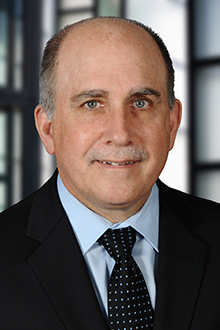The Pep Boys Manny Moe & Jack Of California, LLC v. Old Republic Insurance Company

(Separate Aggregate Limits Were Afforded for Extended Policy Periods Under Excess Policies)
(January 2024) - In The Pep Boys Manny Moe & Jack of California, LLC v. Old Republic Insurance Company et al., ---- Cal.App.5th--- (December 28, 2023), the California First District Court of Appeal affirmed in part, and reversed in part, the trial court’s entry of judgment in favor of excess insurers, Old Republic Insurance Company (“Old Republic”), Executive Risk Insurance Company (aka: American Excess Insurance Company-“American Excess”), and Fireman’s Fund Insurance Company (“Fireman’s Fund”) in connection with whether each of the insurers’ policies afforded separate aggregate limits for an extended policy period for each policy.
The trial court found that each excess policy only afforded “annual aggregate limits”, notwithstanding that each policy extended its policy period beyond 12 months, so that only a single aggregate limit applied to underlying asbestos claims against insured, The Pep Boys Manny Moe & Jack of California, LLC (“Pep Boys”). Based on the policy language in each of the excess policies, the Court of Appeal reversed the trial court’s entry of judgment in favor of Old Republic and Fireman’s Fund, but affirmed the judgment in favor of American Excess. The Court of Appeal reasoned as follows in connection with each excess insurer’s policy language:
A. Old Republic
Old Republic's policy establishes the benefits limit as $10 million “ultimate net loss in all in respect of each occurrence subject to a limit of” $10 million “in the aggregate for each annual period during the currency of this policy.” The term of the policy is 17 months, from February 1, 1981, to July 1, 1982. There is no question that Old Republic must pay up to $10 million for the first 12 months of the term. The parties disagree over how to apply the reference to “each annual period” to the remaining five months in the policy term. Old Republic treats “annual period” as applying to the entire 17-month term of the policy, such that the policy provides a total of $10 million of benefits, while Pep Boys reads the policy term as consisting of two annual periods, one for the first 12 months and the second for the remaining five months, so that the policy provides a total of $20 million of benefits.
The policy language cannot be applied literally as written. “Annual” as a modifier of “period” means “covering the period of a year.” (Merriam-Webster Dict. Online (2023) <https://www.merriam-webster.com/dictionary/annual> [as of Dec. 28, 2023].) Both parties ask us to apply “annual period” to terms more than or less than a year: 17 months, in Old Republic's view, or five months, under Pep Boys' approach. As a textual matter, neither reading accords with the literal meaning of “annual,” and neither is more reasonable than the other.
We turn next to the limited extrinsic evidence that the parties have provided, to determine whether the circumstances of this case clarify the matter. (See Powerine Oil, supra, 37 Cal.4th at p. 391.) According to the letter from its broker to Old Republic's representative, Pep Boys wanted a 17-month policy because it wanted to align the expiration of its insurance policies with its fiscal year. Nowhere is there any suggestion in the letter that Pep Boys wanted to reduce the costs for its insurance or make any changes to the level of its coverage. Pep Boys' desire merely to extend its insurance, rather than reduce its scope or expense, together with the fact that Pep Boys paid a prorated premium, suggests it intended to receive the same level of coverage as it had been, rather than diluting it. This evidence persuades us that Pep Boys intended to receive $10 million in protection during the last five months of the term just as it had for the first 12 months.
B. American Excess
We turn next to American Excess, whose policy provided the balance of Pep Boys' second layer of excess insurance coverage. American Excess's policy demonstrates the effect that different policy language will have. The policy defines the $5 million limit set forth in the declarations as applying “with respect to loss excess of the Underlying Insurance which occurs during the term of this Certificate.” This language is unambiguous. The limits of the policy are set for the entire duration of the policy, not based on annual periods within the policy term. Accordingly, when American Excess extended the term of the policy from one year to 17 months, the same limit set in the declaration page applied to the new, extended term. Pep Boys' reasonable expectations of coverage play no role in the interpretation of American Excess's policy because its language is unambiguous.
C. Fireman’s Fund
Fireman's Fund's policy defines its aggregate limits using the phrase “annual period,” so our interpretation of Fireman's Fund's policy tracks that of Old Republic's. The policy sets a $15 million aggregate limit “for all damages sustained during each annual period of this policy.”
Fireman's Fund argues that there is only a single aggregate limits period because the policy was “written for only one annual period—a single 15-month policy period” and the premium was set as a flat charge. This argument subtly tries to conflate “annual period” with “policy period,” but the policy uses the former term and not the latter. And as with Old Republic's policy, Fireman's Fund's approach of treating the 15-month term of the policy as a single annual period is no more consistent with the literal meaning of “annual period” than Pep Boys' view that the three months remaining after the first year of the policy are a separate annual period. This policy is ambiguous as well.
The same extrinsic evidence we considered ante comes into play again here. The letter from Pep Boys' broker to the Old Republic representative states that Pep Boys wanted to get its “insurance program” concurrent with its fiscal year. The reference to Pep Boys' “insurance program,” together with the fact that both Old Republic's and Fireman's Fund's policies expired on the same date of July 1, 1982, indicates that Pep Boys intended its Fireman's Fund policy to last more than one year for the same reasons as its Old Republic policy. Because there is no indication that Pep Boys intended to reduce coverage or save money, its reasonable expectation was that it was obtaining a new full aggregate limits benefit for the additional three-month period. But even if we disregard this extrinsic evidence as pertaining only to Old Republic, the result would be the same under the rule that ambiguities in an insurance policy are construed against the insurer.
